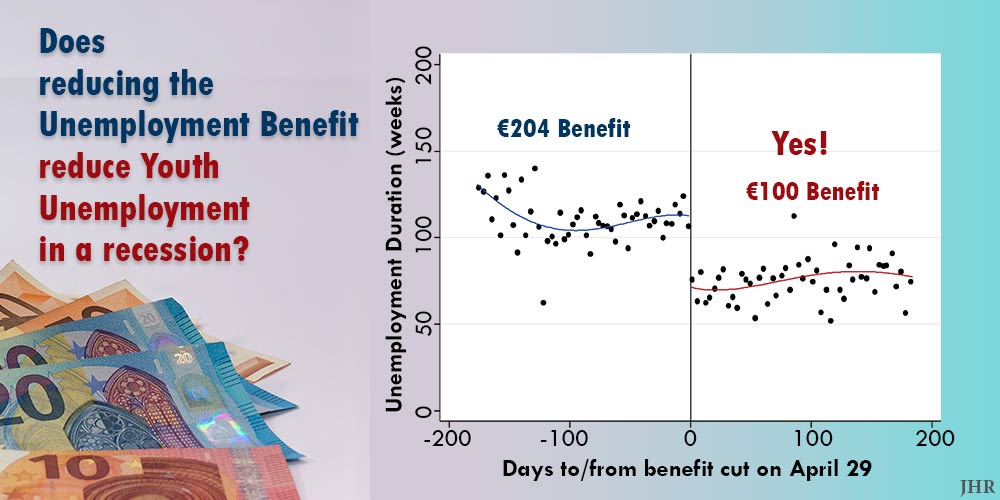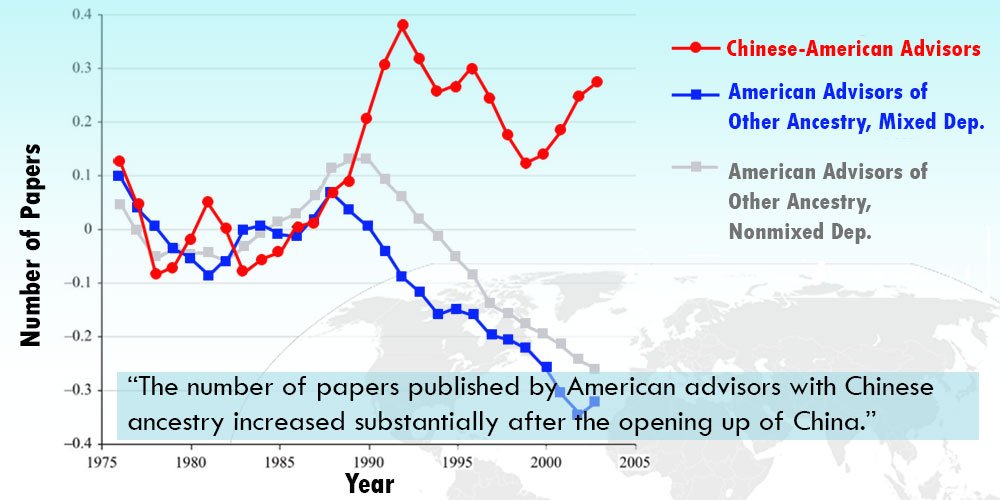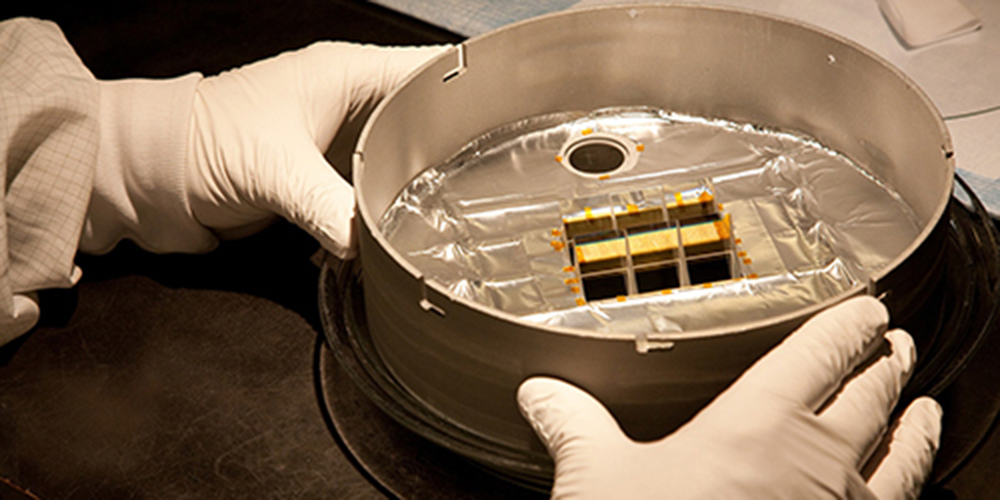Cutting Benefits by 50% to Combat Youth Unemployment—Do Young People Get Back to Work Sooner?
Policies aimed at tackling youth unemployment are a key priority for policymakers because unemployment when young is known to have adverse long-term effects. One proposed measure is to make unemployment benefits for young people less generous. However, opportunities to study the effects of benefit cuts on the young are rare. A sharp cut to benefits in response to the Great Recession allowed Aedín Doris, Donal O’Neill, and Olive Sweetman (Maynooth University) to examine the effects on youth unemployment in Ireland.
Faced with soaring unemployment and a fiscal crisis during the Great Recession, the Irish government halved unemployment assistance for 18- and 19-year-olds, from €204.30 a week to €100 a week (approximately US$237 to US$116). The reduced rate came into effect only for people becoming unemployed after April 29, 2009. This key decision not to apply the cut retroactively allowed Doris, O’Neill, and Sweetman to examine the effects of the benefit cuts by comparing the unemployment durations of those who started their claim just before the April 29 cut-off with those who started a claim just after it.
The legislation dictated that the benefits paid to these groups differed by more than €100, but there is no reason to believe that these two groups differ in other ways. For this reason, it’s reasonable to attribute any differences in the subsequent unemployment durations to the reduction in unemployment benefits.
The figure shows that those becoming unemployed and receiving the lower benefits just after April 29 had unemployment spells lasting approximately a year less, on average, than those who received the higher benefit in the days before April 29th.
This implies a significant individual response to lower unemployment benefits, even in an extremely depressed labor market. The researchers identified training, education, and employment as important routes out of unemployment for those affected by the benefit cut.
The findings show that reductions in unemployment benefit can have a substantial impact on youth unemployment in the short run, increasing employment even during a major recession. However, the longer term effects are less clear. Five years after the initial cut, there was some evidence of improved employment prospects but no impact on earnings.
Read the full study in The Journal of Human Resources: “Does Reducing Unemployment Benefits during a Recession Reduce Youth Unemployment?” by Aedín Doris, Donal O’Neill, and Olive Sweetman
***
Aedín Doris, Donal O’Neill, and Olive Sweetman, Department of Economics, Finance, and Accounting, Maynooth University (@MU_EconFinAcc)



